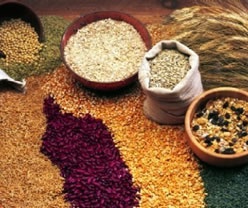
Ghanaians are still feeling the shock of a staggering 73 percent food price hike over the past 18 months.
This fact was revealed by an independent “Food Basket Barometer” study that is carried out on a regular basis whereby prices of 19 food items are recorded.
Between October 2011 and March 2013 the average price increase recorded for the food basket items was a staggering 73%.
Leading the charge was Banku (1 Portion) with an increase in price of 300% – from 0.50 Ghana cedis (GHS) in October 2011 to GHS 2.00 in March 2013. Gari (400gms) increased from GHS 0.35 to GHS 1.00 over the period, representing a 186% increase.
The price of Potato Chips (1 Plate) increased by 120% with prices rising from GHS 5.00 in October 2011 to GHS 11.00 in March 2013. Similarly the price of Fufu (1 Portion) increased from GHS 1.00 to GHS 2.00 representing an increase of 100%.
Both Fufu and Soup (1 Plate) and Long Grain Non-Perfumed Rice (400gms) increased by 80% with price rises of GHS 5.00 to GHS 9.00 and GHS 1.00 to GHS 1.80 respectively.
Although food inflation for the period March 2012 to March 2013 has come down to a level of 11%, the spike in food prices experienced during 2011 has left its mark on many Ghanaians who are finding it hard to make ends meet.
Under these circumstances it is difficult to understand the viewpoint of the Government of Ghana (GOG) through statements made by officials of the Ministry of Food and Agriculture (MOFA) that there is no problem with food security in Ghana.
Food Security Ghana (FSG) has been debating this issue for a long time and has asked repeatedly if the MOFA really understand the essence of what food security is all about.
The World Food Summit of 1996 defined food security as follows, “Food security, at the individual, household, national, regional and global levels [is achieved] when all people, at all times, have physical and economic access to sufficient, safe and nutritious food to meet their dietary needs and food preferences for an active and healthy life”.
Food security is more than just the physical availability of food. It is also about the economic availability of food, or rather the affordability of food. When prices of food escalate by 73% it seriously impact on the affordability and thus poses a threat to food security.
Food security is also not about food self-sufficiency. The previous MOFA administration focused so much on its “war against imports” that it totally lost focus of what food security is all about and this reflected on its performance.
In 2011 the food and agricultural sector recorded a dismal 0.8% growth followed by a matching disappointing 2.6% growth against a target of at least 6% annual growth.
A good example to illustrate this may be the case of Botswana. Compared to Ghana’s estimated GDP per capita of $3,300 Botswana has an estimated GDP per capita of $16,800.
Botswana’s viewpoint on food security is summed up by their food ministry as, “Government has since moved from promoting food self-sufficiency to driving access to food at affordable prices, irrespective of the source of such food.”
Botswana has Africa’s most robust food security status after South Africa, the country from which it imports more than 80 percent of its food bill. Whereas Botswana is rated 47th on the Global Food Security Index, Ghana is rated in position 68.
As part of this “food security” rather than “food self-sufficiency” focus the government of Botswana makes sure it protects its citizens from external price pressures, “For example, tariffs on cereals range from zero on products such as rye, barley, oats, maize and rice…”
Meanwhile the GOG is making sure that imported basic foodstuff is made as expensive as possible for Ghanaian consumers with tariffs of 37% or higher.
Although some may argue that the comparison between Ghana and Botswana is like comparing apples with pears, there is a fundamental principle that distinguishes the two countries.
Whereas Botswana drives its food security policies from the viewpoint of its people and thus the demand for food, Ghana drives its food security policies from the viewpoint of government and thus the local supply of food irrespective of the demand of its people.
The latest revelation that Ghana is spending less than 2% of its national expenditure on food and agricultural compared to a commitment made to spend at least 10% throws a new light on the suffering of Ghanaians.
Food prices in Ghana have rocketed to levels that make it more and more difficult for Ghanaians to make ends meet. In the meantime it looks as if the politicians think they can get away without accountability?
For more on this story including the Food Basket Prices table from October 2011 and March 2013 and the period March 2012 to March 2013.Click Here for more